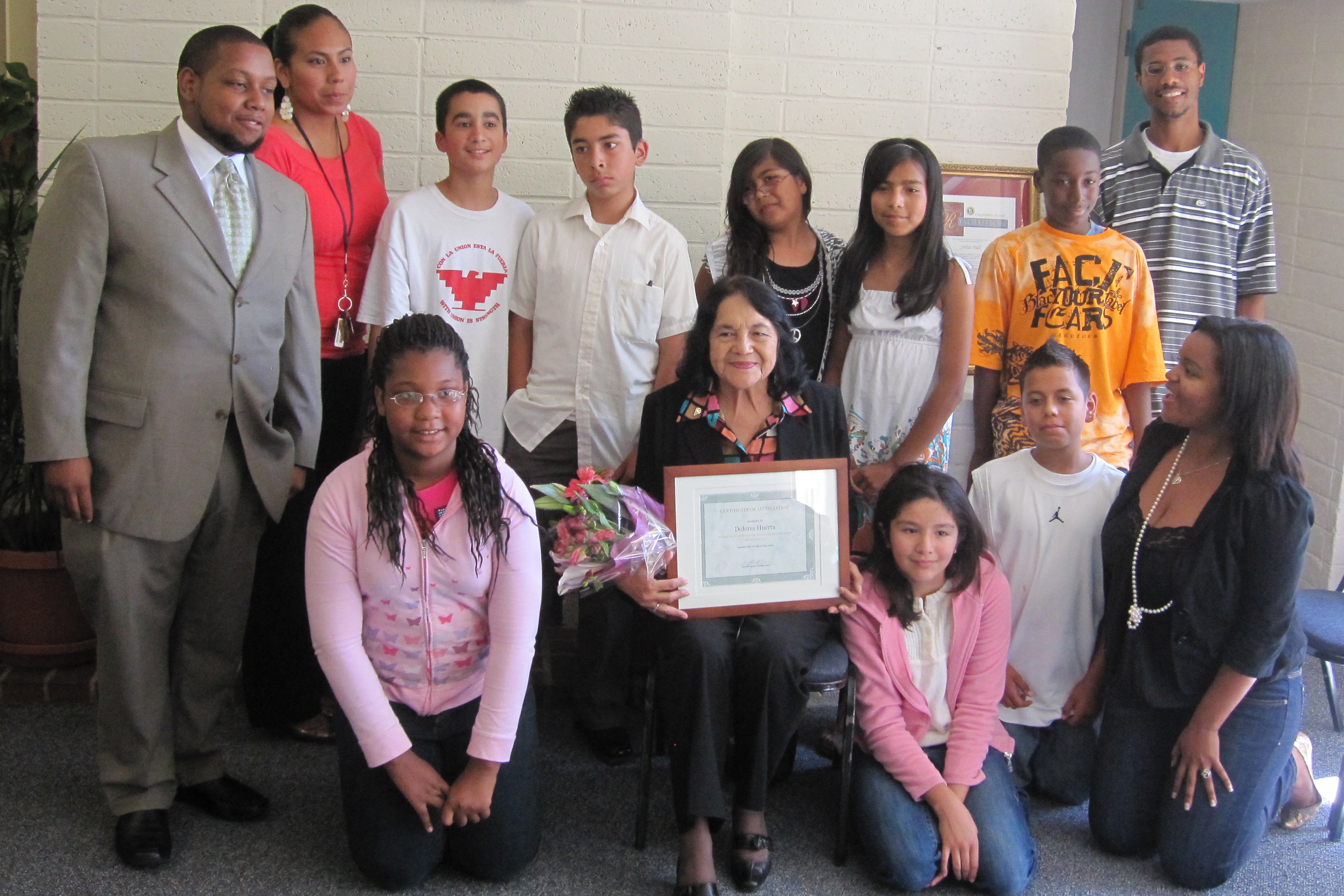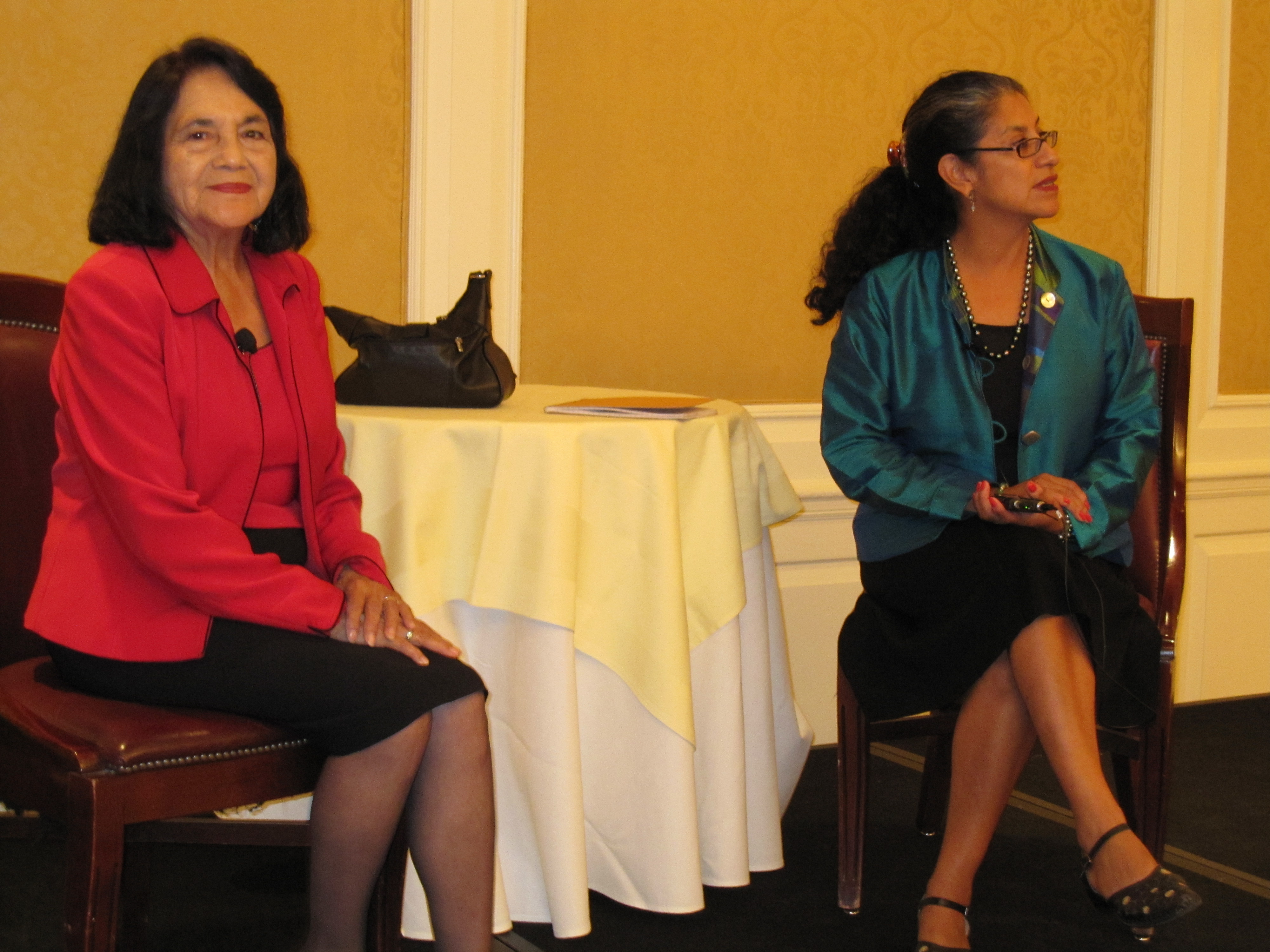CLIO Talks Back

Karen Offen
United States
Archive
- Jun 2011
- May 2011
- Apr 2011
- Mar 2011
- Feb 2011
- Jan 2011
- Dec 2010
- Nov 2010
- Oct 2010
- Sep 2010
- May 2010
- Apr 2010
- Mar 2010
- Feb 2010
- Jan 2010
- Nov 2009
- Oct 2009
- Aug 2009
- Jul 2009
- Jun 2009
- May 2009
- Apr 2009
- Mar 2009
- Feb 2009
- Jan 2009
- Dec 2008
- Nov 2008
- Oct 2008
- Sep 2008
- Aug 2008
- Jul 2008
- Jun 2008
- May 2008
- Apr 2008
I.M.O.W.'s debut blog, Clio Talks Back, will change the way you think about women throughout history! Be informed and transformed by Clio Talks Back, written by the museum's resident historian Karen Offen.
Inspired by Clio, the Greek muse of History, and the museum's global online exhibitions Economica and Women, Power and Politics, Karen takes readers on a journey through time and place where women have shaped and changed our world. You will build your repertoire of rare trivia and conversation starters and occasionally hear from guest bloggers including everyone from leading historians in the field to the historical women themselves.
Read the entries, post a comment, and be inspired to create your own legacies to transform our world.
Talking Back to Power: An Articulate Englishwoman contests Adam Smith?s Male-centered Views about Political Economy
2009-07-29 14:49:40.000
The Scottish philosopher Adam Smith (1723-1790) is considered the father of political economic thought, thanks to his hugely influential book Inquiry into the Nature and Causes of the Wealth of Nations (1776). This work provided the foundation for all subsequent thinking (in the Western world and beyond) about economic structures and processes, based on giving priority to the production and exchange of goods in a free market ? by (male) individuals.
Smith?s model was inherently and fundamentally gendered and did not account for the less visible, unpaid work of women; it was effectively a ?male-breadwinner model,? in which all things familial and domestic were subsumed. It erased reproductive and other forms of non-commodified work, as well as the family structures and support systems that lay behind and made possible the production/market system, particularly as industrial production developed during the nineteenth century.
Early on, there were women who identified this problem and insisted that something vital had been left out. But their critical voices were not ?heard? (or else brushed aside) by the champions of western political economic thought. Feminist economists in the late twentieth century have once again raised this problem in economic thinking and behavior to the forefront. Riane Eisler is only the most recent writer to insist that a truly comprehensive approach to economics would be a ?caring economics,? an economics that would fully value and encompass women?s contributions.
Women have always ?worked,? but their labor has rarely been paid, or paid equivalently to men?s labor. Leonore Davidoff and Catherine Hall have analyzed the very serious consequences for women of this way of thinking as the English middle classes emerged. The value and visibility of women?s caring and support work, so necessary for the undergirding of British entreprise, was effectively eclipsed, hidden behind ?the family.?
Priscilla Bell Wakefield (1751-1832) was probably the first woman to critique Adam Smith?s suppositions. An accomplished Quaker woman (and the aunt of the dynamic prison reformer Elizabeth Fry), she insisted in 1798 that women made contributions to economic life that were just as significant as those of men, despite Smith?s effort (in Book II of Wealth of Nations) to disqualify women?s labor as non-productive since it provided services rather than material goods. To quote Robert Dimant, ?Wakefield . . . took for granted that all useful labour was productive labour, and that the labour of women, whether within the household or in the market sphere, was useful and productive.? (196) To devalue women?s labor was, in effect, to devalue women themselves.
Although Wakefield gave priority in her Reflections to women?s obligations and duties (rather than their rights, as had Mary Wollstonecraft a few years earlier), she also built a powerful argument for women?s education, skill development, and access to well-paid employments so that they might better fulfill their distinctive obligations. She did acknowledge marriage as the best arrangement for the two sexes, but she also thought that women, from whichever class they sprung ? from the wealthiest to the poorest ? needed training in skills to become economically independent and, whether or not they married, to develop their capacities to the fullest extent. She was well aware of the inequalities in wages paid to women workers for doing the same jobs as men, and of men?s efforts to ?monopolize not only the most advantageous employments. . . but even those, which are consistent with the female character.? (Wakefield, p. 150). As a philanthropist, Wakefield founded saving banks to encourage the poor to put away a little money for later.
Wakefield championed a strict sexual division of labor, but in a particular manner (characteristic among the Quakers) that posited wholly separate and parallel economic worlds for women and men. For instance, she advocated that women of the wealthier classes should patronize and employ only women as hairdressers, dressmakers, stay-makers, and the like, in order to further women?s skill development and provide lucrative employment to women of the poorer classes. Wakefield strongly objected to women patronizing ?a brood of effeminate beings in the garb of men? for such purposes. She also promoted the employment of female teachers, writing-masters, etc., in schools for girls, and advocated separation of the sexes in manufacturing establishments as well as in field work. She even called for women to train as undertakers, so they could attend ? with modesty -- to the corpses of deceased women.
Clio is pleased to bring the voice of Priscilla Wakefield to I.M.O.W. Here are some of her thoughts about valuing women?s economic contributions ? more than two hundred years go. Her observations, which you can read below, are still valid today.
-----------------------------------------
?It is asserted by Doctor Adam Smith, that every individual is a burthen [sic] upon the society to which he belongs, who does not contribute his share of productive labour for the good of the whole. The Doctor, when he lays down this principle, speaks in general terms of man, as a being capable of forming a social compact for mutual defence, and the advantage of the community at large. He does not absolutely specify, that both sexes, in order to render themselves beneficial members of society, are equally required to comply with these terms; but since the female sex is included in the idea of the species, and as women possess the same qualities as men, though perhaps in a different degree, their sex cannot free them from the claim of the public for their proportion of usefulness. That the major part of the sex, especially of those among the higher orders, neglect to fulfil this important obligation, is a fact that must be admitted, and points out the propriety of an enquiry into the causes of their deficiency.? [pp. 1-3]
?There appears then no moral impediment to prevent women from the application of their talents to purposes of utility; on the contrary, an improvement in public manners must infallibly result from it; as their influence over the other sex is universally acknowledged, it may be boldly asserted, that a conversion of their time from trifling and unproductive employments, to those that are both useful and profitable, would operate as a check upon luxury, dissipation, and prodigality, and retard the progress of that general dissoluteness, the offspring of idleness, which is deprecated by all political writers, as the sure forerunner of national decay.? [pp. 69-70]
?The knowledge of a trade is a probably means, which ought not to be neglected, of enabling them to give their assistance towards the support of their family; but should it be more eligible for the husband and the wife to unite in the prosecution of the same design, her former subjection to regular application will render her more apt in accommodating herself to her husband?s business. Thus the benefit of apprenticing girls of this rank to some trade is equally apparent, whether they marry or live single.
?Men monopolize not only the most advantageous employments, and such as exclude women from the exercise of them, by the publicity of their nature, or the extensive knowledge they require, but even many of those, which are consistent with the female character. Another heavy discouragement to the industry of women, is the inequality of the reward of their labour, compared with that of men, an injustice which pervades every species of employment performed by both sexes.? [pp. 150-151]
?The serving of retail shops, which deal in articles of female consumption, should be exclusively appropriated to women. For were the multitudes of men, who are constantly employed in measuring linen, gauze, ribbons, and lace; selling perfumes and cosmetics; setting a value on feathers and trinkets; and displaying their talents in praising the elegance of bonnets and caps, to withdraw, they might benefit the community, by exchanging such frivolous avocations for something more worthy of the masculine character, and by this measure afford an opportunity of gaining a creditable livelihood to many destitute women, whom a dreadful necessity drives to the business of prostitution. ? The attendance of women in shops, need not be entirely confined to haberdashers, perfumers, and milliners; there are other trades in which they may be employed behind the counter: the familiar offices of trying on gloves and shoes, are more suitably performed by persons of the same sex.? [pp. 164-165]
Suggested Further Reading:
Robert Dimand, ?An Eighteenth-Century English Feminist Response to Political Economy: Priscilla Wakefield?s Reflections (1798), in The Status of Women in Classical Economic Thought , ed. Robert Dimand & Chris Nyland (Aldershot: E. Elgar, 2003), pp. 194-205.
Gina Luria, ?Introduction,? to the 1974 reprint of Priscilla Wakefield, Reflections on the Present Condition of the Female Sex, with Suggestions for its Improvement (London: J. Johnson, 1798; reissued in 1817).
Adam Smith, Inquiry into the Nature and Causes of the Wealth of Nations (1776; frequently reprinted).
Leonore Davidoff & Catherine Hall, Family Fortunes: Men and Women of the English Middle Class, 1780-1850 (Chicago: The University of Chicago Press, 1987).

Dolores Huerta with students from the Berkeley Scholars to Cal program, posing with their gift of flowers and a commemorative certificate

Dolores Huerta with Maria Echaveste at the Omni Hotel, July 22, 2009
Two Days with Dolores Huerta
2009-07-28 00:00:00.000
By Sarah Beckett-Hile, outreach volunteer
I.M.O.W. recently hosted a Speaker Series Event featuring Dolores Huerta in conversation with Maria Echaveste. I had the privilege of joining Dolores for a portion of her brief stay in San Francisco, and needless to say, I am still a little starstruck.
For those of you who don’t know much about Dolores, let me try to quickly catch you up: she co-founded the United Farm Workers with César Chávez; co-directed the National table grape boycott; coined the slogan “Si, se puede!” (“Yes, we can!”); created the Dolores Huerta Foundation to empower poor communities; raised her 11 children…the list goes on and on. You can learn more about her background from our event description.
On top of everything, Dolores Huerta is 79 years old and just as busy as ever. Her foundation is currently expanding, but she still finds time to lecture at universities, campaign for politicians, and sit on several boards and councils for foundations and museums (including I.M.O.W.’s Global Council. Her schedule in San Francisco would have exhausted a 25-year-old, yet she was always vibrant, talkative, and eager for the next event!
By the time we picked her up from her hotel early Tuesday afternoon, Dolores had already flown in from Bakersfield and participated in a press conference concerning Iran. Now she was scheduled to speak to the students of Berkeley Scholars to Cal, a Stiles Hall program that helps at-risk minority students the tools pursue a college education by providing them with mentors and academic support from 5th to 12th grade. In the car Dolores chatted casually about her foundation, her family, and--as if it were nothing at all--her recent lunch with the Dalai Lama.
At Stiles Hall, the students listened to her with visible awe--in part, I believe, because she spoke to them as adults. She was frank but funny while discussing racism and sexism in America’s past and present. She relayed stories about farm workers in the same tone of importance that she spoke of Hillary Clinton (whom she knows well), displaying her unaffected respect for all people, poor or powerful. Afterward, the students remained for pictures and autographs, and many even gave her hugs. When we finally tore her away to get back to San Francisco, it was difficult to tell whether Dolores or the students were more disappointed.
In the 16-odd hours that passed until the next time I saw Dolores, she squeezed in a conference call about her foundation, a formal dinner party, a photo shoot at City Hall and an interview for a documentary. But from the lively way she chatted with I.M.O.W.'s Executive Director Clare Winterton during an interview for our upcoming exhibition on women, money and the global economy, you’d have thought she had spent a rejuvenating day in the hotel spa.
That night, Dolores spoke with Maria Echaveste before a room packed with admirers. She was funny, cutting, clever, and hardly needed to pause for breath. She acted no differently before this large audience than she did during the car ride to Berkeley. When she shared her belief that people are responsible to help anyone in need, when she commanded the audience to work harder and get more involved in their communities, never for a second did she seem sanctimonious or holier-than-thou. It was a fantastic event--just ask the 200 audience members who gave her a standing ovation.
Meeting Dolores Huerta and spending time with her was a unique pleasure. More than her accomplishments and famous connections, what struck me most of all was how genuine a person she is--which explains why she has helped thousands of people and how she has inspired millions to do the same.

